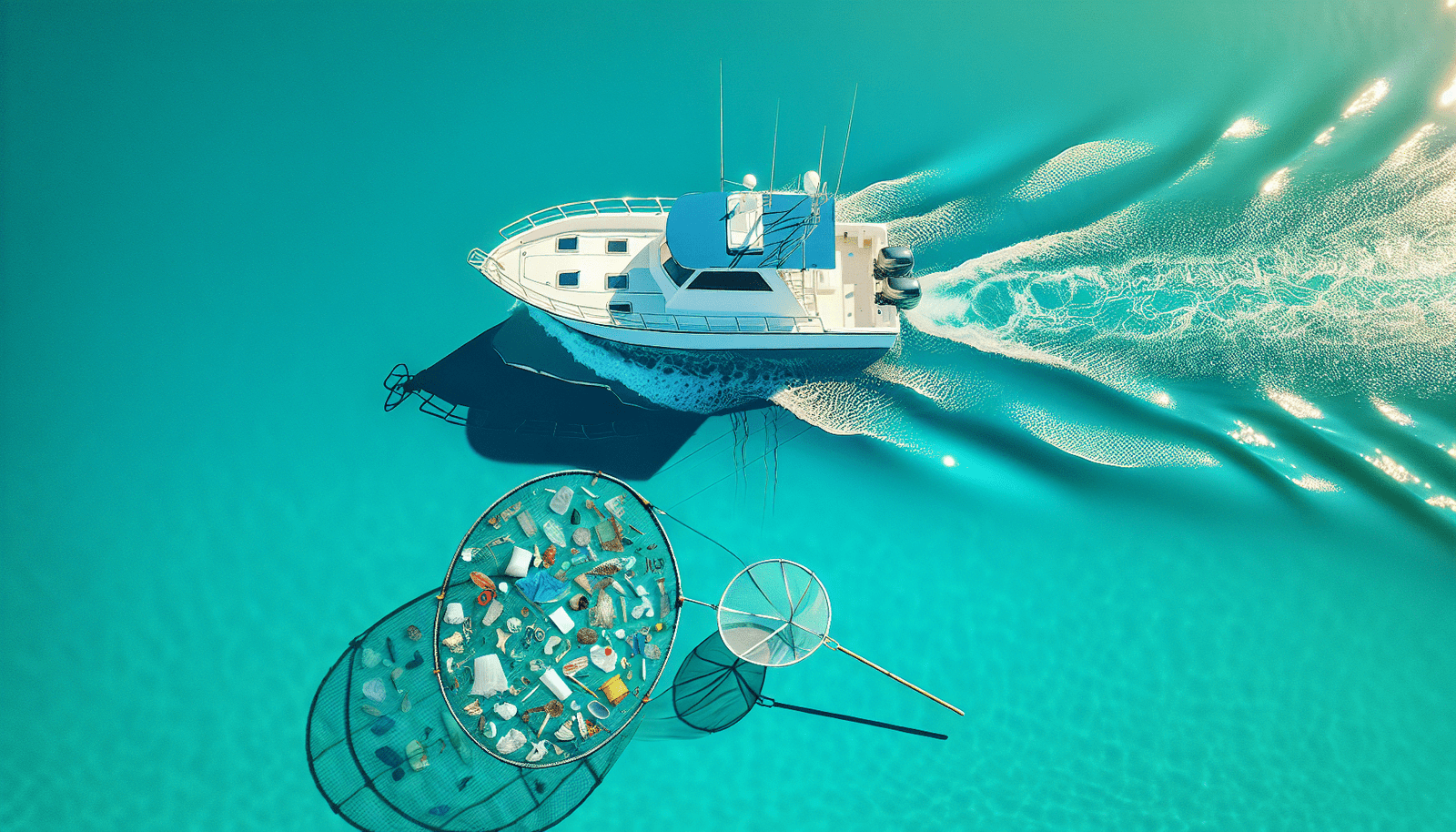Imagine a serene day out on the waters, commanding your pristine boat and leaving a trail of clean waves in your wake. This perfect scenario isn’t just about guiding a well-oiled marine machine, but also leaving as little environmental impact as possible. “Top Tips For Minimizing The Environmental Impact Of Boat Engines” provides you with smart, effective strategies that blend boating passion with a conscious effort to protect our precious ecosystems. So, gear up for your next boating adventure armed with the knowledge that your engine’s impact won’t weigh heavily on nature’s beauty.
Understanding the Impact of Boat Engines on the Environment
Boat engines, just like other machines, have a direct and profound impact on the environment. Understanding their role in pollution is crucial to raise awareness and push for more sustainable boating practices.
The role of boat engines in water pollution
Boat engines significantly contribute to water pollution. Oil and gas that your boat releases can contaminate the water and harm aquatic life. The problem worsens when such harmful substances get a chance to accumulate over time, resulting in long-term detrimental effects on marine ecosystems. Besides, any leaked coolants or engine antifreeze compounds can also exacerbate this issue.
Impact of emission from boat engines on marine life
Direct emissions from your boat engine do more than just pollute the air. These emissions, primarily in the form of exhaust gases, also dissolve into the water, leading to a range of harmful effects on aquatic life. Rising acidity levels due to these dissolved gases can severely affect delicate marine life. Moreover, potentially harmful materials like copper, zinc, and other heavy metals from your engine can continually leach into the water.
Repercussions on air quality
Boat engines are significant sources of air pollution, more so if they are old and poorly maintained. Their emissions include carbon monoxide, Hydrocarbons, nitrogen oxides, and particulate matter, all of which contribute to poor air quality. These pollutants can worsen respiratory diseases, lead to smog formation, and even accelerate climate change.
Selecting Eco-friendly Engines
An eco-friendly boat engine is an essential step towards reducing your ecological footprint. Unlike traditional engines, these engines are specifically designed to minimize environmental harm.
Pros of electric propulsion systems
Electric propulsion systems stand out as a more sustainable alternative to traditional boat engines. These engines produce zero direct emissions, which means they contribute much less to air and water pollution. They operate quietly, reducing noise pollution, an often-overlooked factor influencing marine life.
Hybrid engine systems and their impact
Hybrid engines combine the power of fuel engines and the cleanliness of electric engines. These engines reduce fuel consumption and cut down on emissions, resulting in a comparatively lesser ecological impact. Moreover, they offer the power of conventional engines, making them a practical choice for boating enthusiasts.
Choosing newer engines with lower emissions
Newer engines are often more efficient and cleaner than old ones. They consume less fuel, produce fewer emissions, and generally have a less harmful impact on the environment. So, choosing a newer, eco-friendlier boat engine is an excellent way to contribute to environmental preservation.
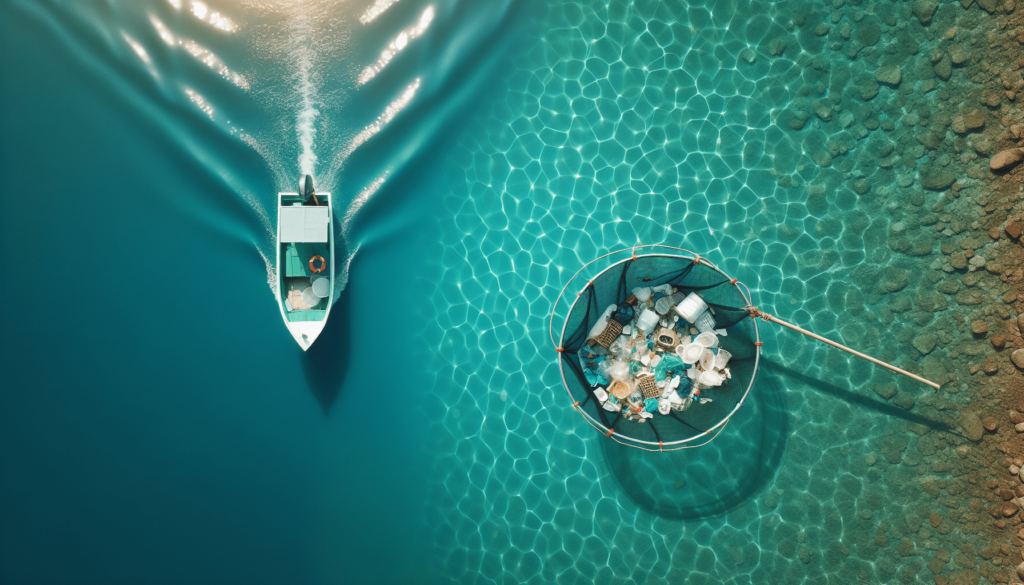
Regular Maintenance of Boat Engines
Like any other machine, your boat engine requires regular maintenance to perform optimally and reduce its environmental impact.
Impact of preventive maintenance on engine longevity
Preventive maintenance ensures the longevity of your engine. By routinely inspecting, adjusting, and replacing essential parts of your engine, you can prevent significant breakdowns, which in turn reduces the frequency of replacement and thereby minimizes the wastewater and raw materials exploitation associated with the production of new engines.
Keeping marine engines clean to reduce pollution
A clean engine is a more efficient engine. By regularly cleaning your marine engines, you prevent the accumulation of harmful substances, reducing the overall level of pollutants that your engine emits into the environment. Moreover, a clean engine runs smoother, putting less strain on its parts and further extending its lifespan.
Importance of regular engine inspections
Regular engine inspections enable you to spot any problems early and take the necessary remedial actions. By preventing minor issues from ballooning into significant ones, you can decrease the likelihood of your engine releasing harmful substances into the environment.
Proper Use of Boat Engines
How you use your boat engine can impact its ecological footprints.
Avoiding engine idle for long periods
Idling your engine for extended periods can lead to unnecessary fuel usage and an increase in emissions. It’s always a good idea to switch off your engine when it’s not in use.
Impact of maintaining optimal rpm
Keeping your engine running at its optimal revolutions per minute (rpm) can significantly cut down on fuel consumption and reduce emissions. Operating within this range allows your engine to achieve the best possible fuel economy while maintaining an acceptable level of performance.
Understanding the right speed: Slowing down to save fuel
Driving your boat at too high a speed can waste fuel and increase emissions. Maintaining a moderate speed not only improves fuel efficiency but also reduces the creation of excessive wakes which can harm aquatic life and disrupt marine ecosystems.
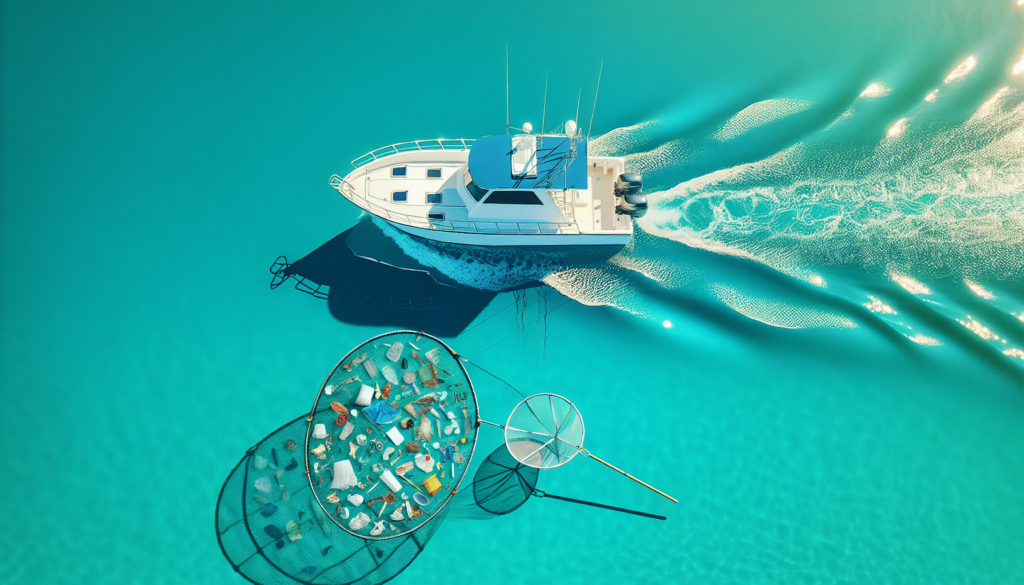
Appropriate Fueling Techniques
The way you fuel your engine also affects its impact on the environment.
Selecting eco-friendly fuels
Eco-friendly fuels, such as biofuels, can reduce the environmental impact of your boat engine. These fuels produce fewer pollutants and are generally renewable, making them a sustainable choice for your boat engine.
Preventing spilling of fuel
Fuel spills can harm marine life and damage aquatic ecosystems. Always pay attention while fueling your boat and have the necessary equipment on hand to manage any spills. This includes absorption pads and containment devices that can prevent spills from spreading.
The role of a well-maintained fuel delivery system in reducing emissions
A well-maintained fuel delivery system ensures that your engine gets the right amount of fuel at the right time. This not only optimizes the performance of your engine but also reduces emissions and fuel consumption.
Implementing Advanced Cooling Methods
Boat engines generate a considerable amount of heat that needs to be managed properly to ensure efficient operation. Traditional cooling methods, however, can contribute to pollution.
Closed-loop cooling systems for reduced impact
Closed-loop cooling systems circulate coolant within the engine, preventing it from cumulatively leaking into the environment and causing harm. These systems are thus more environmentally friendly than the traditional ones. They reduce the chances of coolant spills and lower the risk of overheating.
Alternative cooling methods
Exploring alternative cooling methods can also help to preserve the environment. For instance, raw water cooling, which uses the surrounding water to cool your engine, could be a viable option, especially if the local regulations allow for it.
Eco-friendly coolant options
Even with advanced cooling systems, the type of coolant you use matters. Eco-friendly coolants, unlike their traditional counterparts, are less toxic and have a reduced impact on marine life and the environment. They minimize the risks of pollution if leaks or spills occur.
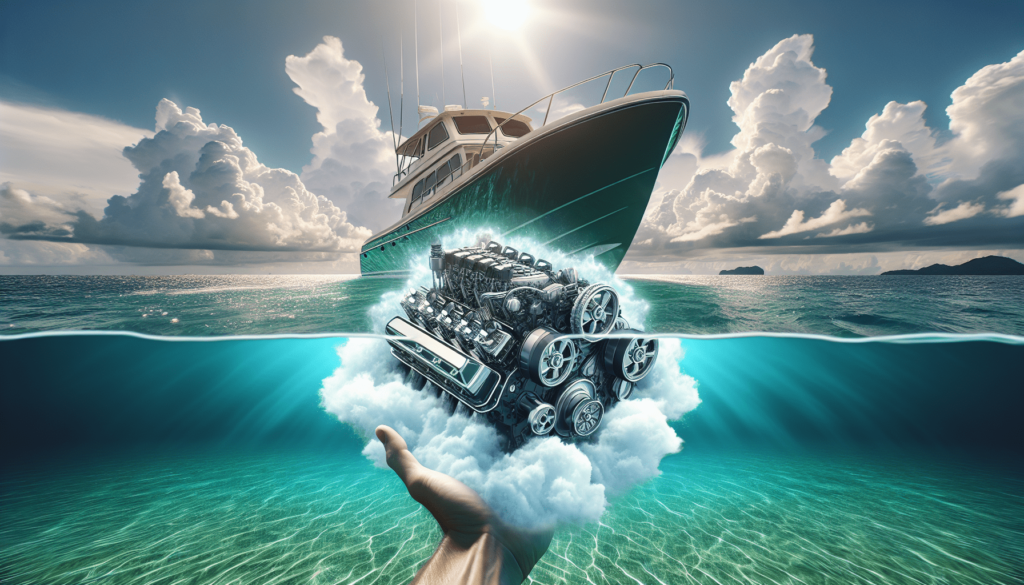
Consider Seasonal Storage
Storing your boat off-water during the off-season is a simple yet effective way of minimizing the environmental impact of boat engines.
Storing the boat off-water during off-season
Keeping your boat off the water during the off-season inhibits the risk of oils, coolants or other harmful substances leaking into the water. Furthermore, it reduces the chances of your boat inadvertently damaging sensitive marine habitats.
Importance of engine maintenance before storage
It’s crucial to properly maintain and clean your engine before storing it to prevent corrosion and leaks. This step reduces the need for a significant overhaul when you eventually bring your boat back onto the water.
Use of eco-friendly anti-freeze agents
Using eco-friendly antifreeze agents during storage is another way to minimize environmental harm. These antifreeze agents are less toxic and biodegradable, causing fewer repercussions if they somehow end up in the natural environment.
Adopting Eco-Friendly Boating Habits
Your boating habits can significantly affect the magnitude of your boat’s environmental impact.
Understanding speed regulations and wakes
Speeding can waste fuel and create large wakes that can erode coastal areas and damage underwater habitats. Always stick to the speed regulations and avoid producing excessive wakes.
Steps to limit oil spills
Preventing oil spills is crucial for eco-friendly boating. Use fuel spill containers, regularly service your engine, and always be vigilant while fueling to avoid spillage.
Reducing unnecessary weight on the boat
Carrying unnecessary weight on your boat can increase fuel consumption and emissions. Minimize the load on your boat to enhance fuel efficiency and lower its environmental impact.
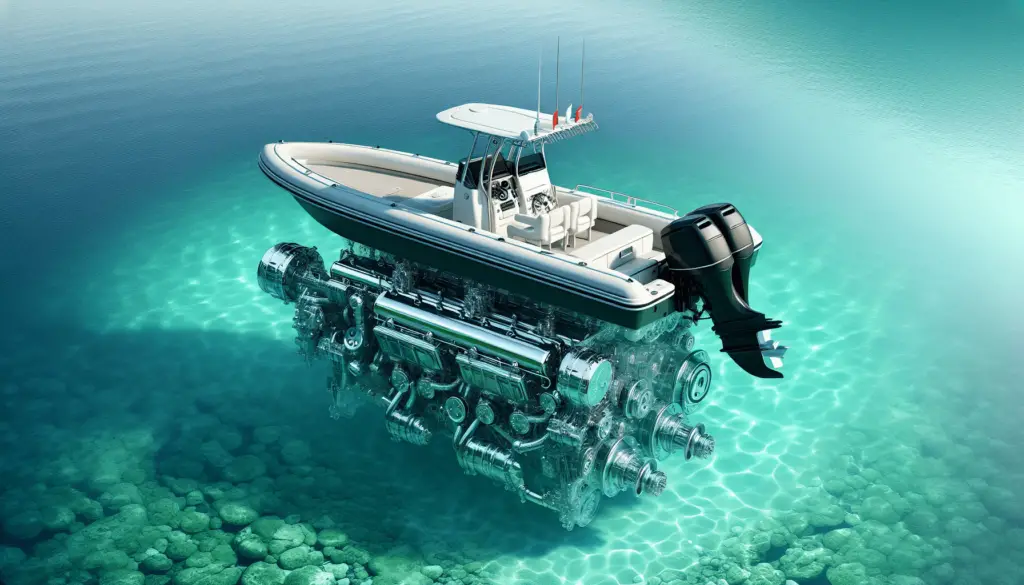
Installing Eco-Features on Boats
Taking your green boating practices a step further, you could also consider incorporating certain eco-features on your boat.
Implementing solar panels for new energy source
Solar panels on your boat are a great way to harness renewable energy. They can power your on-board appliances and even supplement your propulsion, reducing the need for fossil fuels and cutting down on emissions.
Use of energy-efficient on-board gadgets
Switching to energy-efficient appliances on your boat, such as LED lights and low-consumption electronics, can reduce your energy requirements, leading to less fuel consumption and lower emissions.
Advantages of low-draw LED lighting
Low-draw LED lights are more energy-efficient than traditional boat lights. They last longer, need less power, reduce your energy requirements and, as a result, your boat’s greenhouse gas emissions.
Learning from Sustainable Marinas and Boat Companies
Some marinas and boat companies have embraced sustainability, setting fabulous precedents for others to follow.
Case studies of sustainable boat manufacturing companies
Many boat manufacturing companies prioritize sustainability in their processes. They aim to reduce waste, utilize eco-friendly materials, and build engines that are efficient and clean. Learning from such companies can help individuals make better, more informed choices about their own boats.
Learning from best practices of eco-friendly marinas
Eco-friendly marinas follow practices that limit contamination of waterways, manage waste properly, and promote the use of renewable energy. By opting for such marinas, you support their efforts and encourage others to adopt similar practices.
Technological innovations for sustainable boating
The world of boating is continually evolving, with many technological innovations aimed at making boating more sustainable. From advanced hybrid engines to smart energy management systems, these innovations offer lesser environmental impact and better efficiency.
In conclusion, the environmental impact of boat engines is a significant concern, but it’s something you can help reduce. By choosing cleaner engines, maintaining them properly, using them efficiently, and adopting eco-friendly boating practices, you can indulge in your boating passion without leaving a large ecological footprint. Every step taken towards sustainable boating is a step towards a better, cleaner environment.

